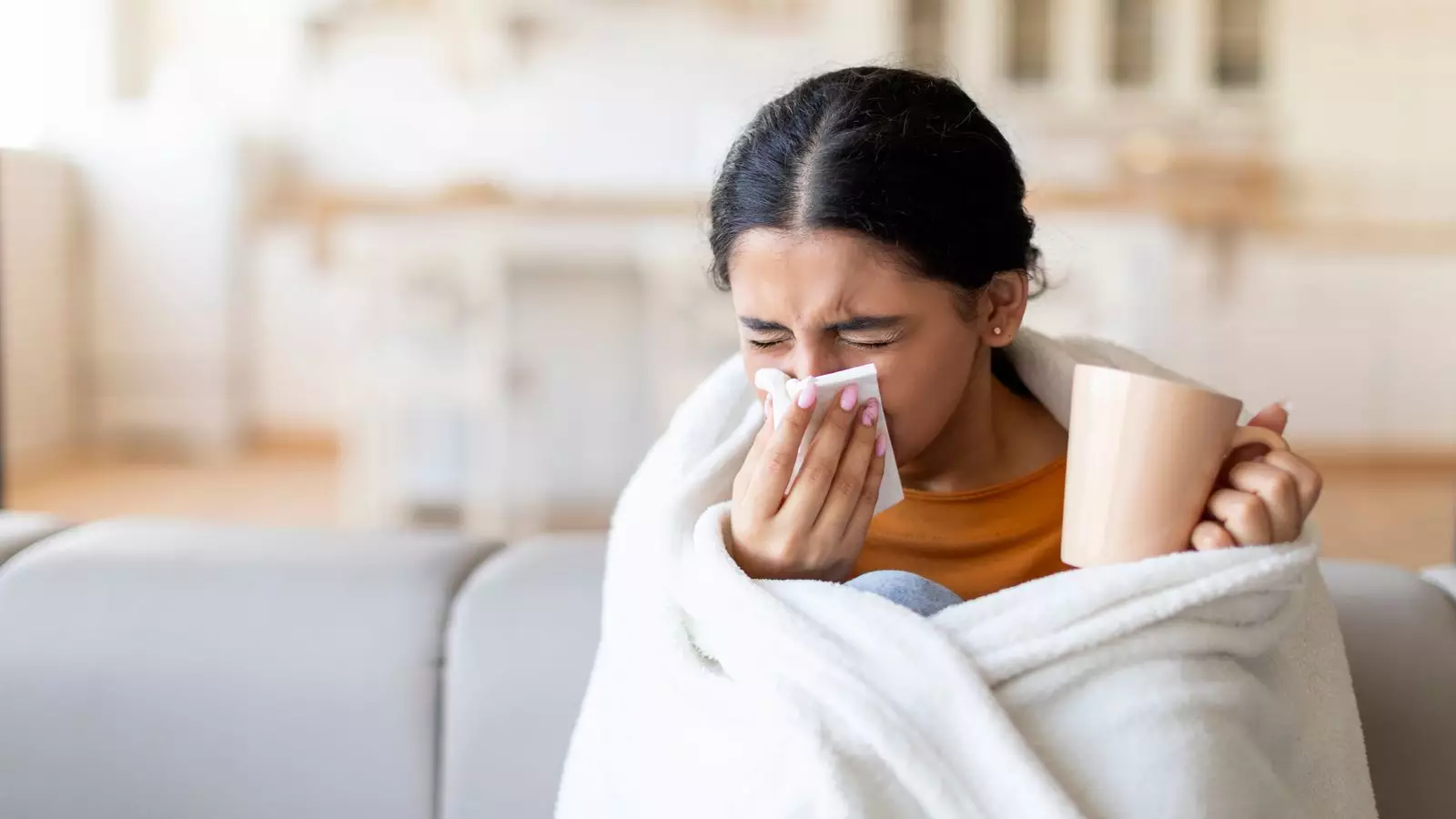This winter season, the UK faces an alarming rise in influenza cases, with the NHS reporting a staggering 70% increase in hospitalizations related to flu within just one week. The average number of daily flu patients surged from 1,099 to 1,861, showing a dramatic shift compared to the same period last year, which recorded only 402 cases. The age group most affected by this uptick in infections is children aged 5 to 14, revealing a concerning trend among young populations. With schools and nurseries approaching closure for the holiday, health officials anticipate a further rise in adult cases as well.
Beyond influenza, the healthcare environment is increasingly complicated by the simultaneous rise in other viral infections, predominantly norovirus and respiratory syncytial virus (RSV). NHS England reported an average of 837 hospital beds occupied due to norovirus symptoms last week, reflecting a 10% increase from the previous week and an alarming 64% rise compared to last year. Additionally, RSV led to hospitalizations for an average of 152 children daily, intensifying the healthcare pressures as the season progresses.
The Quad-Demic Challenge
As various illnesses spread, health professionals express fears of a “quad-demic,” a situation where four common viral infections—flu, norovirus, RSV, and COVID-19—coincide, stressing resources and challenges for the National Health Service (NHS). GP David Lloyd highlighted the risks, noting the elevated complications of contracting multiple viruses simultaneously during the winter months. The propensity for gatherings indoors during this festive time presents a unique challenge, as people are more likely to transmit infections to one another.
The urgency of vaccination campaigns has become a focal point for healthcare authorities. Individuals eligible for vaccinations against flu, COVID, and RSV are encouraged to act quickly, using convenient resources such as pharmacies, supermarkets, and even festive locations like Christmas markets. Groups prioritized for free flu vaccinations include the elderly, pregnant women, and individuals with pre-existing health conditions. The message from medical professionals is clear—immunization is essential to minimize the likelihood of severe illness this winter.
Professor Sir Stephen Powis from NHS England has communicated the gravity of the current health scenario, emphasizing that the spike in flu cases and other seasonal viruses should not be dismissed lightly. The NHS is on high alert, with health Secretary Wes Streeting reinforcing the importance of vaccination to protect both individual patients and the NHS’s operational capacity. The collective message from health authorities stresses that this winter, proactive measures, namely vaccination, are crucial in combating the health crisis.
As the surge in flu cases continues, it’s worth noting the strain already placed on accident and emergency departments. November marked the busiest month on record for A&E services, with 2.31 million attendances. Despite a slight decrease in overall treatment waiting lists for various conditions, the persistent demand on emergency resources raises concerns about health service accessibility and effectiveness. The NHS aims to maintain patient care while addressing the challenges of unprecedented patient volumes.
The current state of flu infections, alongside rising rates of norovirus and RSV, paints a concerning picture for public health in the UK. As the holiday season nears, the dual challenge of managing routine healthcare provisions while responding to an unpredictable surge in viral infections remains paramount. The public must heed calls from healthcare leaders to ensure that vaccination efforts are prioritized.
Moreover, the preventive strategies, combined with effective communication from health officials, will serve as essential tools in navigating this quad-demic challenge. The importance of public cooperation in adhering to public health guidelines, seeking vaccinations, and recognizing the early signs of illness cannot be overstated. As community resilience is tested, the NHS’s ability to provide care will depend significantly on the population’s proactive measures to protect themselves and one another during this critical time. The convergence of these seasonal illnesses serves not only as a health challenge but also as a call to unity in facing a public health crisis.

Leave a Reply